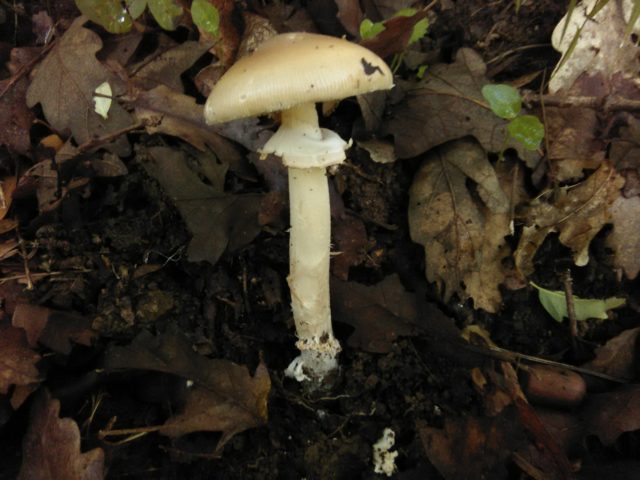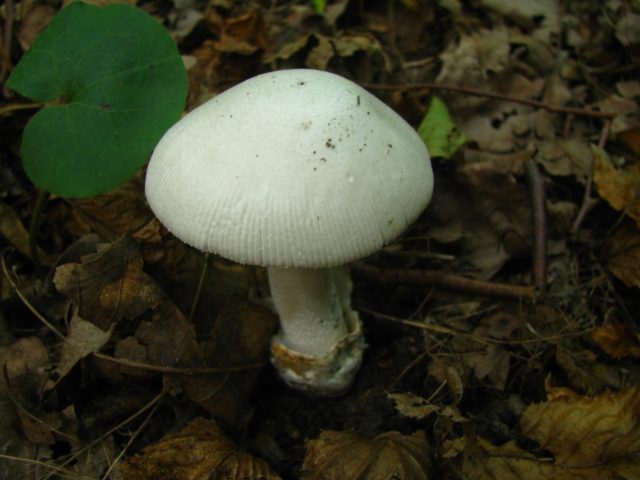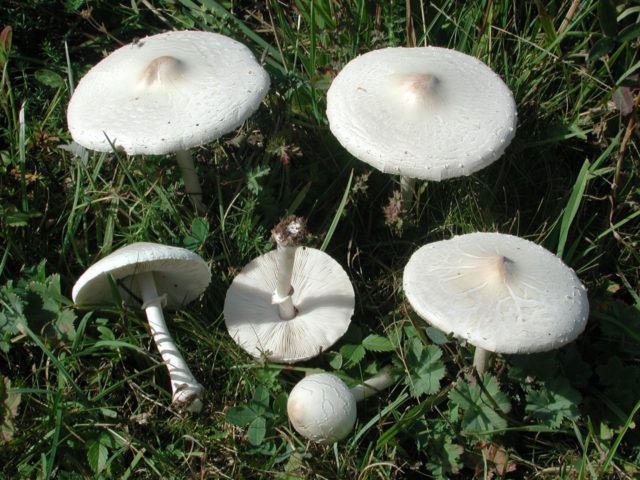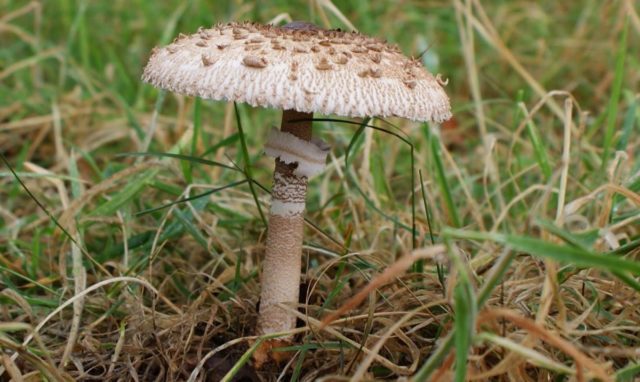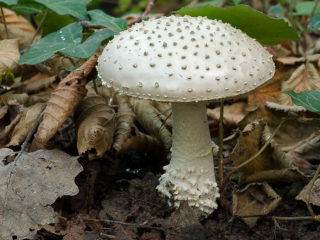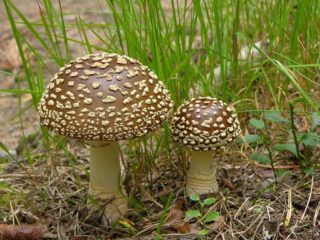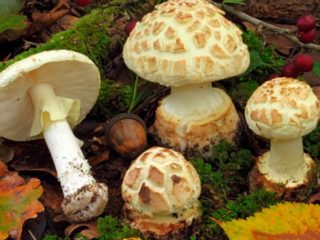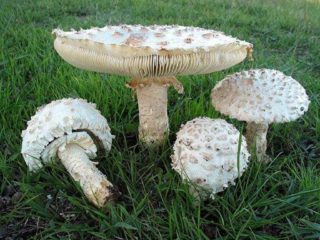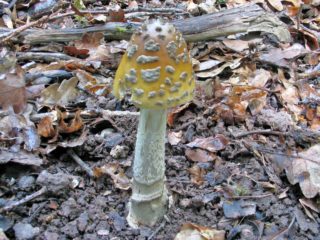Content
Amanita Elias is a rather rare variety of mushrooms, unique in that it does not form fruiting bodies every year. Russian mushroom pickers know little about him, since they practically did not meet with him.
Description of Amanita Elias
Like all representatives of the Mukhomorovs, this mushroom has a fruiting body, consisting of their legs and caps. The upper part is lamellar, the elements are thin, free, white in color.
Description of the hat
The cap is medium in size, it does not exceed 10 cm in diameter. In young specimens, it is more like an egg in shape; as it grows, it changes shape to convex. Sometimes a tubercle forms in the middle. The color can be different. There are specimens with a pink hat and even a brown one. There are scars on the edges, they can bend up. If the weather is humid, it becomes slimy to the touch.
 Leg description
Leg description
The leg is typical for representatives of this genus: flat, thin, high, resembling a cylinder in shape. It can reach from 10 to 12 cm, sometimes it has a bend. At the base it is slightly wider, there is a ring hanging down and having a white color.
Where and how it grows
Amanita Elias grows in regions with a Mediterranean climate. It is found in Europe, but in Russia it is very difficult to find it. It is considered a rare representative of the Mukhomorovs. Grows in mixed and deciduous forests, prefers the neighborhood of hornbeam, oak or walnut, as well as beech. Can live near eucalyptus trees.
Amanita Elias is edible or poisonous
Belongs to the group of conditionally edible. The pulp is dense, but due to the unexpressed taste and almost complete absence of smell, it has no nutritional value. Mushrooms appear at the very end of summer and at the beginning of autumn.
Doubles and their differences
This species has quite a few siblings:
- The float is white. It is conditionally edible, does not have a ring. At the bottom there is the remnant of a Volvo.
- The umbrella is white. Edible look. The difference is the brownish tint of the cap, it is covered with scales.
- The umbrella is thin. Also from the edible group. It has a characteristic sharp tubercle on top, as well as scales all over its surface.
Conclusion
Amanita Elias is not a toxic mushroom, but it shouldn't be harvested. He does not have a bright taste, besides, he has many poisonous counterparts that can cause serious poisoning.
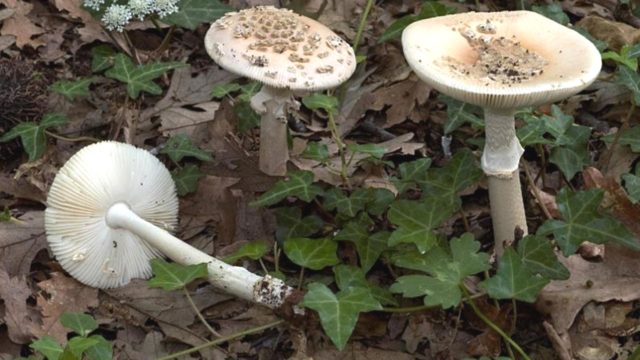
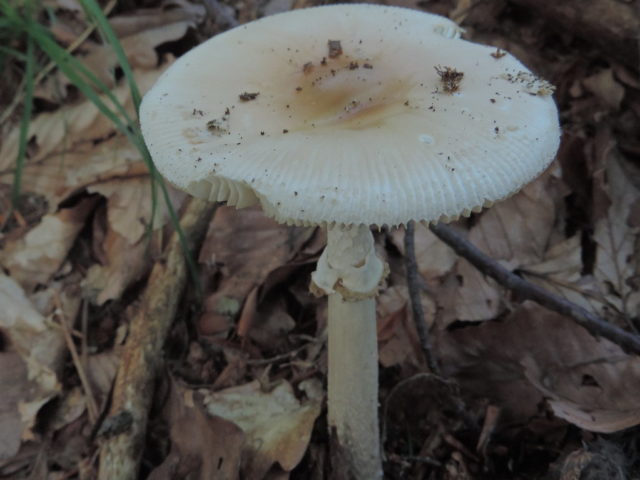 Leg description
Leg description